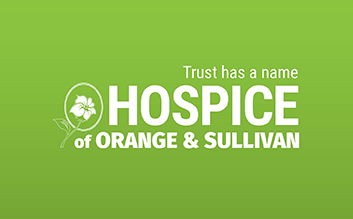
When to Seek Hospice Care for a Loved One with Dementia or Alzheimer’s
Dementia, as with many terminal diagnoses, doesn’t always have a clear progression, making it difficult for a physician or the loved one’s family members to determine when professional care should be sought. Although determining when it’s appropriate can be difficult, hospice care can make a massive difference at the end of life for a loved one suffering from dementia, and can result in their final days being spent in greater care and comfort.
Physicians might not always tell you that it’s time for your loved one to receive hospice care, in part because they might not be sure how far along the disease is progressing. It is important for you and your doctor to have open conversations and share goals about maintaining quality of life. In some cases, hospice care may lengthen life by providing high quality care for the time remaining. For an Alzheimer’s/dementia patient, some signs a patient is reaching late stages of the disease include:
- Having difficulty breathing or swallowing
- Needing assistance walking and is eventually unable to walk
- Needing full-time help with personal care, like eating or shifting positions in a bed or chair
- Being highly vulnerable to infection, particularly pneumonia
- Being unable to speak or make oneself understood
Further, families and loved ones who choose hospice care for the end of life stages tend to be confident that they made the right choice, since hospice care focuses on the highest amount of comfort for the patient. It is also possible that you, a family member, or a friend has taken on the role of caregiving, which can be mentally and physically overwhelming. There are many tasks that a caregiver must take on, and it can be difficult to give care without further support. Read more on what to expect from end-of-life care for dementia here.
You don’t need a physician referral to call hospice. In fact, many reach out to us for help in determining whether hospice care is the best option. There are several ways to tell that you, as a caregiver, might benefit from seeking hospice care for a loved one. Click here to read more on signs that you might benefit from hospice care as the primary caregiver. To fill out a form for a referral to hospice services, click here or call us at 845-561-6111.
